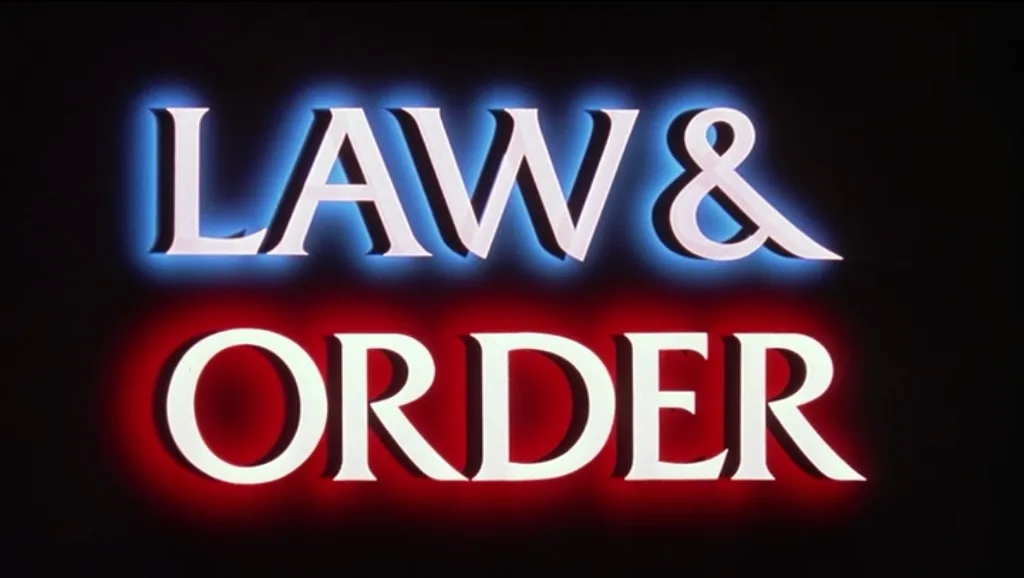3 Takeaways From This Week’s ‘Law and Order’ Episode ‘An Inconvenient Truth’
Actor and Innocence Project Board Member Tony Goldwyn stars in an episode on wrongful conviction.
Pop Culture 04.19.24 By Megan McIlroy
It’s not often that Law and Order, the wildly popular and long-running NBC series, tackles issues of wrongful conviction. Set in the Manhattan district attorney’s office, the TV drama revolves around the police hunt for perpetrators of a crime and the attorneys who prosecute the alleged offenders.
But this week’s episode was built around a case of wrongful conviction and the role of prosecutors in revealing and preventing these injustices.
Actor and Innocence Project Board Member Tony Goldwyn, who plays District Attorney Nicholas Baxter in the series, has long been an advocate for wrongly convicted people. In 2001, he heard the story of Kenny Waters, who was exonerated that year with the help of Mr. Waters’ sister, Betty Anne Waters, and the Innocence Project. Betty Anne’s dedication to freeing her brother, which included putting herself through law school, inspired Mr. Goldwyn to produce and direct, Conviction, a feature film based on her extraordinary journey.
This week’s Law and Order episode opens with the murder of Jordan Bryant, then a successful chef who spent 12 years in prison for a crime he didn’t commit as a result of eyewitness misidentification. Exonerated by the city’s “Post-Conviction Justice Unit” using DNA evidence, Mr. Bryant was paid a $10 million settlement by New York City, but the money was almost all gone at the time of his death. Detectives begin to suspect Mr. Bryant’s attorney, Keith Palmer, for the murder after an eyewitness claimed to see a person wearing a shiny green jacket and a New York Islanders hat — items that Mr. Palmer owns — flee the crime scene.
The case goes to trial, but Assistant District Attorney Nolan Price develops misgivings about the prosecution’s case as the eyewitness’s identification of Mr. Palmer becomes increasingly tenuous. After speaking with District Attorney Baxter, who acknowledges that “we are the ones who put this horrible tragedy in motion,” Assistant District Attorney Price decides to drop the charges against Mr. Palmer – preventing another wrongful conviction and allowing the real perpetrator to be found.
Here are three key takeaways from the episode:

Actor and Innocence Project Board Member Tony Goldwyn stars in the latest Law & Order episode, which highlights wrongful conviction.
Eyewitness misidentification contributes to an overwhelming majority of convictions overturned by DNA evidence.
In the episode, Mr. Bryant was wrongly convicted of rape and murder and served 12 years in prison before being exonerated by DNA evidence. Mr. Bryant, who was Black, was wrongly identified as the attacker by the victim’s father, who is white. Later in the episode, the person who stabbed Mr. Bryant is identified by an eyewitness who didn’t get a good look at the perpetrator’s face and is only able to remember a “shiny green jacket” and a “New York Islanders hat.”
Eyewitness misidentification, as portrayed in the episode, is common in wrongful conviction cases. Eyewitness identifications are not always reliable because memory is malleable and identifications can be heavily influenced by law enforcement procedures in, for example, the administration of lineups and photo arrays.
As seen in the case of Mr. Bryant’s wrongful conviction, cross-racial identification is particularly unreliable. Data shows that people are more likely to misidentify a person of a different race, and white people are particularly bad at distinguishing between people of color.
Wrongful convictions disproportionately impact Black people.
The wrongful conviction of Mr. Bryant, who was Black, reflects a disturbing reality — Black and brown communities bear a disproportionate burden within the criminal legal system. Nearly 60% of the people that the Innocence Project has helped to free or exonerate since 1992 are Black. And more than half of the 3,300 people who were exonerated in the U.S. between 1989 and 2022 are Black, according to the National Registry of Exonerations. This is despite the fact that Black people account for just 13.6% of the U.S. population. A 2022 report from the registry further found that innocent Black people were seven times more likely to be wrongly convicted of murder than innocent white people.
Prosecutors can play a critical role in revealing, reversing, and preventing wrongful convictions.
In last night’s episode, the Manhattan Post-Conviction Justice Unit confirmed Mr. Bryant’s innocence through post-conviction DNA testing.
When led by a district attorney who commits to appropriate staffing, resources and best practices, a Conviction Integrity Unit (CIU) can help restore justice for wrongly convicted people and strengthen accountability in the criminal legal system. Indeed, at least 30 of the Innocence Project’s 250 victories involved a CIU. They include the case of Renay Lynch, whose exoneration of a 1995 murder was secured by the Innocence Project, co-counsel Fisher & Byrialsen, PLLC, and the Erie County District Attorney’s CIU.
When the show’s Assistant District Attorney Price begins to have doubts that Mr. Palmer is the attacker in Mr. Bryant’s murder, he drops the charges against Mr. Palmer with District Attorney Baxter’s full support. Both officials reflect on the responsibility of prosecutors to prevent wrongful convictions, which they say are “anathema to the criminal justice system, and to the human spirit. ” After they drop the case against Mr. Palmer, further investigation reveals the person who actually murdered Mr. Bryant. By refusing to go forward with a questionable case, the fictional Assistant District Attorney Price highlights the need for law enforcement and prosecutors to explore all avenues of evidence to prevent potentially convicting the wrong person for a crime.

Leave a Reply
Thank you for visiting us. You can learn more about how we consider cases here. Please avoid sharing any personal information in the comments below and join us in making this a hate-speech free and safe space for everyone.